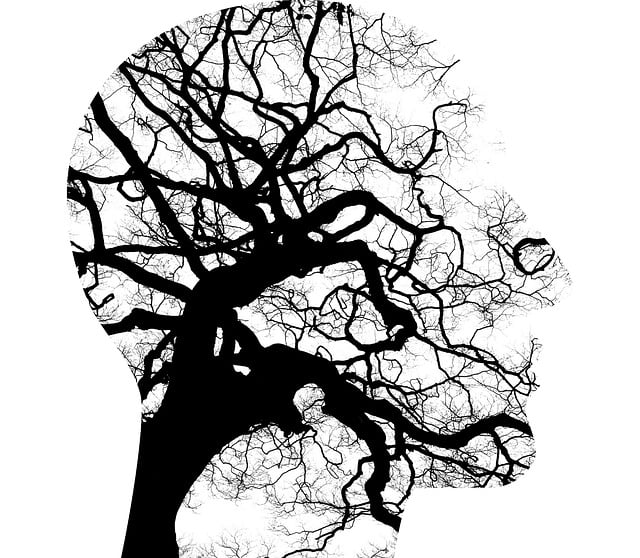Understanding emotion regulation is crucial for catering to elders' mental health needs, often overlooked in traditional services. Gender-affirming care creates safe spaces, validating elders' identities and fostering trust for open communication, essential for effective therapy. Tailored strategies like Mindfulness Meditation enhance emotional awareness and reduce stress. Comprehensive training and burnout prevention for healthcare providers improve the quality of emotional support, preventing provider exhaustion. Teaching emotion regulation skills through inclusive practices and cultural perspectives significantly improves elders' emotional well-being and quality of life, reducing societal burdens on mental health services.
Emotion regulation is a vital skill, especially for elders facing age-related challenges. This article explores effective techniques to enhance emotional well-being among older adults, with a specific focus on gender-affirming care as a transformative tool in therapy. We delve into common struggles in emotional management, providing healthcare providers and caregivers with practical strategies.
Through case studies, we showcase real-world success stories of emotion regulation training, highlighting its potential to revolutionize support for this demographic. By understanding and addressing emotions, elders can navigate life’s twists and turns with renewed resilience.
- Understanding Emotion Regulation for Elders: The Role of Gender-Affirming Care
- Common Challenges in Emotional Management Among Older Adults
- Effective Techniques for Teaching Emotion Regulation Skills
- Practical Strategies for Healthcare Providers and Family Caregivers
- Case Studies: Real-World Success Stories of Emotion Regulation Training
Understanding Emotion Regulation for Elders: The Role of Gender-Affirming Care

Understanding emotion regulation is particularly crucial when it comes to teaching elders, a demographic often overlooked in mental health services. Elders, especially those living alone or with cognitive impairments, may struggle to identify and manage their emotions effectively due to lifelong changes in brain function and social connections. This is where gender-affirming care plays a transformative role. By creating a safe and supportive environment that respects an elder’s identity and experiences, healthcare providers can enhance the effectiveness of therapy for elders.
Gender-affirming care involves recognizing and valuing an individual’s self-assessed gender, regardless of their sex assigned at birth. This approach is especially beneficial in therapy for elders as it fosters trust and encourages open communication. In the context of community outreach program implementation, compassion cultivation practices such as Mindfulness Meditation can be tailored to address emotional challenges specific to elders. These practices promote emotional awareness, helping them recognize and accept their feelings without judgment, ultimately enhancing their ability to regulate emotions effectively.
Common Challenges in Emotional Management Among Older Adults

Emotion regulation can pose unique challenges for older adults, who may face increased stress and anxiety due to various factors such as health concerns, retirement, or loss of loved ones. Unlike younger individuals, older people often have different coping mechanisms and may struggle with expressing their emotions in socially acceptable ways. This is particularly relevant in the context of healthcare settings, where the dynamic between patients and healthcare providers (HCPs) can significantly impact emotional management.
Gender-affirming care is an essential aspect of addressing these challenges. Healthcare Provider Cultural Competency Training plays a crucial role in equipping HCPs with the skills to understand and respect diverse cultural expressions of emotion. By promoting sensitivity to ageism, ableism, and other biases, such training can prevent burnout among healthcare providers while fostering more supportive environments for older adults. Moreover, integrating Burnout Prevention Strategies for Healthcare Providers into care protocols ensures that mental wellness coaching programs can be developed and implemented effectively, enhancing the overall quality of emotional support available to this demographic.
Effective Techniques for Teaching Emotion Regulation Skills

Teaching emotion regulation skills to elders is a valuable aspect of care, especially within therapeutic settings and community outreach programs. Effective techniques should be tailored to suit individual needs, taking into account cultural and gender-affirming perspectives. One powerful approach is integrating compassion cultivation practices, which have shown promise in reducing stress and enhancing emotional well-being among older adults. These practices encourage empathy and kindness towards oneself and others, fostering a sense of connection and resilience.
Moreover, burnout prevention strategies for healthcare providers can indirectly support emotion regulation by promoting their own mental health. When caregivers are equipped with tools to manage their emotions, they can better assist elders in navigating their feelings. This holistic approach, combined with community outreach program implementations that focus on inclusive activities, can significantly improve emotional regulation capabilities and overall quality of life for elderly individuals.
Practical Strategies for Healthcare Providers and Family Caregivers

Teaching emotion regulation techniques is a valuable skill for healthcare providers and family caregivers, especially when supporting older adults. In the realm of therapy for elders, gender-affirming care approaches can be particularly effective in fostering emotional well-being. By incorporating practical strategies, these care providers can empower individuals to navigate their emotions more effectively. For instance, helping seniors develop a structured self-care routine that includes physical activity, mindfulness practices, and healthy eating habits can significantly contribute to depression prevention.
Additionally, training caregivers in conflict resolution techniques allows them to handle interpersonal challenges with empathy and grace. By learning to recognize and respect each individual’s emotional needs, healthcare providers and family members can create a supportive environment, enhancing overall mental health. These strategies not only assist elders in managing their emotions but also strengthen the bond between caregivers and those under their care.
Case Studies: Real-World Success Stories of Emotion Regulation Training

Emotion regulation techniques have proven to be transformative in various real-world scenarios, particularly when tailored to specific populations. Case studies highlight the efficacy of teaching emotional management skills among older adults, who often face unique challenges in coping with stress and anxiety due to physical health issues or societal isolation. Through gender-affirming care and personalized guidance, these programs have shown remarkable results in enhancing mental wellness. For instance, a study conducted in a senior living community demonstrated that implementing a structured journaling exercise significantly reduced symptoms of depression and increased overall life satisfaction among participants.
This success extends beyond individual cases; it underscores the potential impact of emotion regulation training as a component of broader mental health policy analysis and advocacy. By integrating stress reduction methods into care plans, healthcare providers can foster healthier aging and improve quality of life for elders. Such initiatives not only benefit individuals but also have societal implications, potentially reducing the burden on mental health services and promoting more resilient communities.
Emotion regulation techniques are invaluable tools for enhancing the well-being of elders, especially in addressing gender-specific challenges. By understanding the unique needs of older adults and implementing effective teaching strategies, healthcare providers and caregivers can significantly improve emotional management. The case studies presented demonstrate that tailored interventions, incorporating gender-affirming care, can lead to positive outcomes. With these insights, we can foster more supportive environments, promoting not only emotional stability but also a higher quality of life for our elders in today’s digital era.














